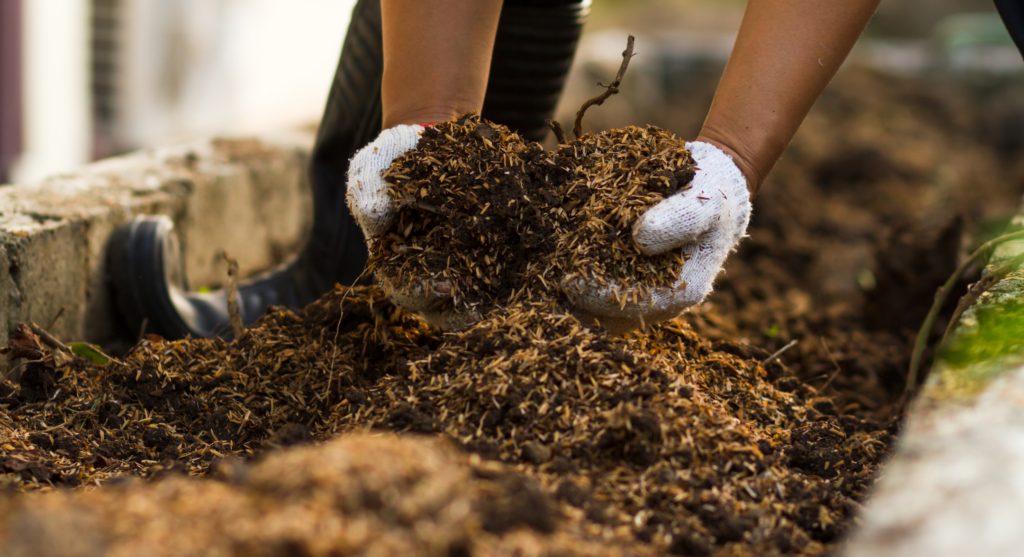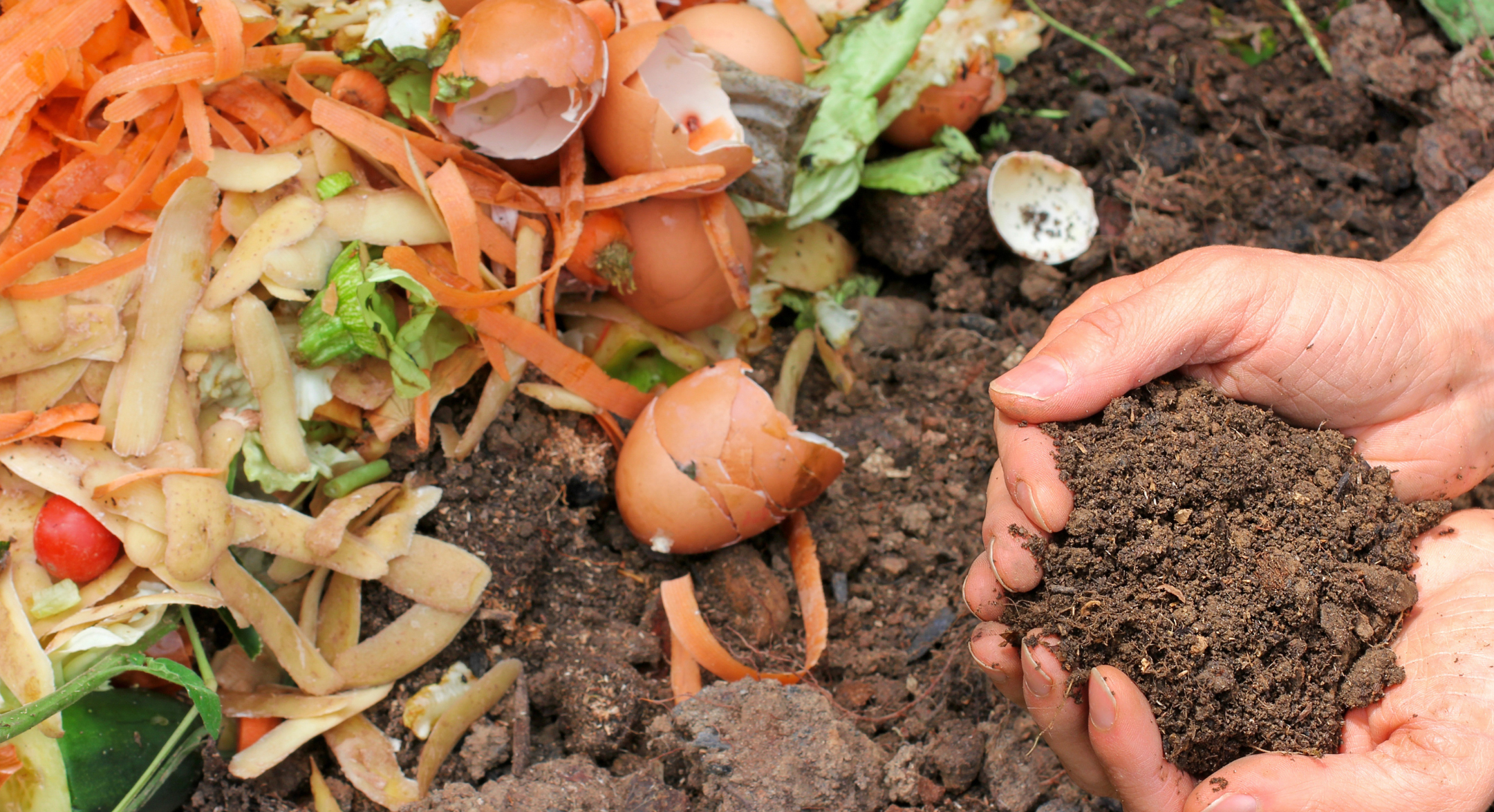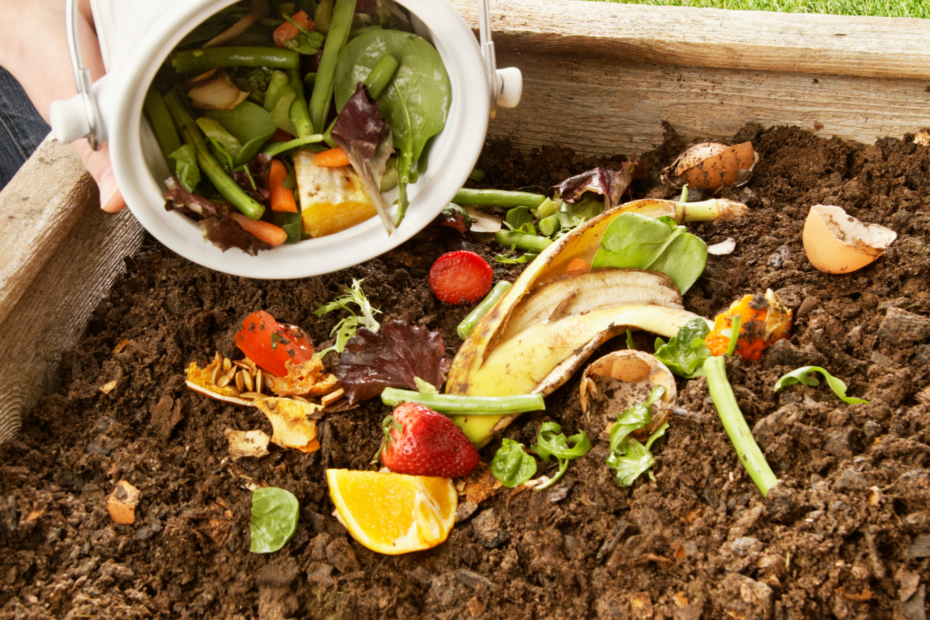Home composting is a sustainable practice that converts organic waste into natural fertilizer, benefiting both your garden and the environment. In addition, this process helps reduce waste and improves soil quality. In other words, by opting for this technique, you promote a virtuous cycle of reuse and environmental preservation. In this article, we will explain the main benefits, the steps to start composting at home and how to avoid the most common mistakes.
What is Home Composting?
Home composting consists of the biological decomposition of organic waste through the action of microorganisms, such as bacteria and fungi. Consequently, the result of this process is humus, a natural compost full of nutrients that enrich the soil. For example, fruit and vegetable scraps and even eggshells can be turned into fertilizer. Furthermore, this practice reduces the amount of waste sent to landfills, contributing to the reduction of environmental impacts. In this way, composting adapts easily to different environments, from apartments to spacious backyards.
Benefits of Home Composting
Opting to compost at home brings significant advantages. Below, we detail the main benefits of this sustainable practice:
1. Reducing Organic Waste
- You generate a large amount of organic waste every day.
For example, almost half of household waste is made up of food scraps and vegetable waste. - With composting, this waste is no longer disposed of inappropriately.
Consequently, the volume of waste sent to landfills is reduced. - Therefore, greenhouse gas emissions decrease.
Thus, you contribute to improving air quality.
2. Natural Fertilizer Production
- By producing your own fertilizer, you reduce your dependence on chemical fertilizers.
In this way, the humus generated enriches the soil with essential nutrients. - In addition, your plants and gardens grow healthier.
In short, the production of natural fertilizer favors a more organic and sustainable cultivation.
3. Lower Environmental Impact
- When organic waste is not disposed of in landfills, methane emissions are controlled.
On the other hand, this practice reduces pollution and protects the environment. - Thus, composting becomes an effective tool in the fight against climate change.
Furthermore, you contribute to the preservation of natural resources.
4. Improving Soil Quality
- Humus improves soil structure and aeration.
In this way, water retention capacity increases, favoring plant development. - In summary, well-nourished soil promotes more robust and productive growth.
5. Economy
- Producing fertilizer at home generates financial savings.
Consequently, you reduce spending on industrialized products. - In addition, the practice encourages more conscious consumption.
Therefore, your investments can be directed to other improvements in the home.
How to Start Composting at Home
Starting composting can be simpler than it seems. Below, we present the essential steps for you to start transforming waste into fertilizer:

Choose the Type of Composter
First, it is important to select the compost bin that best fits your space. There are several options:
- Traditional Compost Bin:
This option is ideal for small spaces, such as apartments. It usually uses stackable boxes and takes up little space. - Vermicomposting:
In this method, earthworms (especially Californian worms) accelerate the decomposition process. - Piling Composting:
If you have a yard, forming a pile outdoors is a practical and efficient alternative.
Separate Organic Waste
After defining the compost bin, organize the waste that will be used. To do this, divide it into two categories:
- Green Waste (rich in nitrogen):
Include leftovers from fruits, vegetables, coffee grounds and eggshells. These materials speed up decomposition. - Brown Waste (rich in carbon):
Use dry leaves, sawdust, cardboard and shredded newspaper. They help maintain balance and prevent odors.
Next, maintain a ratio of 3 parts brown waste to 1 part green waste. This way, the composting process occurs in a balanced manner.
Assemble the Composter
After separating the waste, it’s time to assemble the composter. Follow these guidelines:
- Create alternating layers:
Start by laying down a layer of brown material, then add a layer of green material and continue alternating layers. - Check the humidity:
It is essential that the contents remain moist, but not soggy. So, if necessary, sprinkle a little water on hotter days. - Cover the waste:
Use a lid or other material to prevent pests, such as insects and rodents, from entering.
Finally, remember to stir the compost regularly to ensure air circulation and speed up decomposition.
What Can and Cannot Be Composted
To obtain a high-quality fertilizer, it is important to know which waste is suitable for composting. Check it out below:
Suitable Materials
- Fruit and vegetable peels:
These wastes decompose quickly and enrich the compost. - Vegetable scraps:
Ideal for adding nitrogen to compost. - Coffee grounds and paper filters:
Contribute to the structure of the compost. - Eggshells:
Provide calcium, although they take a little longer to decompose. - Dried leaves and sawdust:
Help balance moisture and prevent odors. - Cardboard and shredded newspaper:
Facilitate aeration of the compost and aid in uniform decomposition.
Unsuitable Materials
- Meat and bones:
These items can attract pests and harm the composting process. - Dairy products:
Milk, cheese and other dairy products can generate unpleasant odors. - Oils and fats:
These complicate decomposition and can contaminate the compost. - Animal excrement:
These residues generally contain pathogens and attract insects. - Seasoned food scraps:
Seasonings can alter the balance of fertilizer. - Sick plants:
Can spread diseases in the garden and compromise the health of the soil.
Common Composting Mistakes and How to Fix Them
Although the composting process is relatively simple, some mistakes can compromise the quality of the fertilizer. Below, we list the most frequent errors and recommended solutions:

Excess Moisture
When the composter becomes waterlogged, the decomposition process is impaired and unpleasant odors can form.
To solve this problem, add more dry materials, such as leaves or sawdust, and stir the compost more frequently. This way, the moisture will be balanced and the process will continue without setbacks.
Lack of Oxygenation
If the compost becomes compacted, the lack of air can generate an anaerobic environment and unwanted odors.
Therefore, it is essential to turn the contents at least once a week, ensuring that oxygen circulates freely.
This way, decomposition becomes faster and more efficient.
Use of Inappropriate Waste
Some materials, such as meat and dairy products, should not be composted, as they can attract pests and compromise the quality of the fertilizer.
Therefore, make sure to use only appropriate waste according to the list presented.
Consequently, the composting process will remain balanced and safe.
Tips to Speed Up Composting
If you want to speed up the composting process, here are some practical tips:
Chop the Waste into Smaller Pieces
Cutting the waste into smaller pieces increases the contact area of the materials with the microorganisms.
For example, smaller pieces decompose more quickly, which accelerates the formation of humus.
Choose a Suitable Location
Place the compost bin in a well-ventilated location and, if possible, protected from direct rain.
This way, excessive moisture is avoided and decomposition occurs under ideal conditions.
Use Worms in Vermicomposting
Earthworms, especially Californian worms, significantly speed up the decomposition process.
In other words, if you choose to vermicompost, add worms to your composter for faster, more efficient results.
Composting’s Impact on the Community and the Environment
The practice of composting isn’t limited to just the benefits for your garden; It also generates positive impacts for the community and the environment.
On the one hand, reducing organic waste sent to landfills reduces the emission of polluting gases, such as methane.
On the other hand, the use of natural fertilizers encourages organic farming, reducing dependence on chemical fertilizers.
In addition, raising awareness about the importance of reusing waste can inspire neighbors and friends to adopt sustainable practices, expanding the benefits for the entire society.
Final Considerations
Home composting represents a smart and affordable strategy for transforming waste into a valuable resource.
Initially, when you start composting, you contribute to the reduction of waste sent to landfills, which results in a positive environmental impact.
Next, the production of a high-quality natural fertilizer favors the healthy growth of plants and saves money.
Furthermore, by avoiding the use of chemical fertilizers, you promote sustainability and protect local biodiversity.
Finally, sharing this practice with family and friends can stimulate a cultural change, strengthening the commitment to the environment.
In short, home composting is an effective method for transforming waste into nutrients, improving soil quality and promoting sustainability.
Therefore, start separating organic waste today and set up your compost bin, adapting it to your needs.
Therefore, each small action contributes to a greener and more balanced future, both individually and collectively.
In conclusion, transforming waste into humus is a practical way to combine economy, sustainability and quality of life.
Therefore, by adopting this practice, you not only take care of your space, but also inspire others to follow the same path.
Finally, composting is a transformative action that benefits the environment, the community and your own home.

